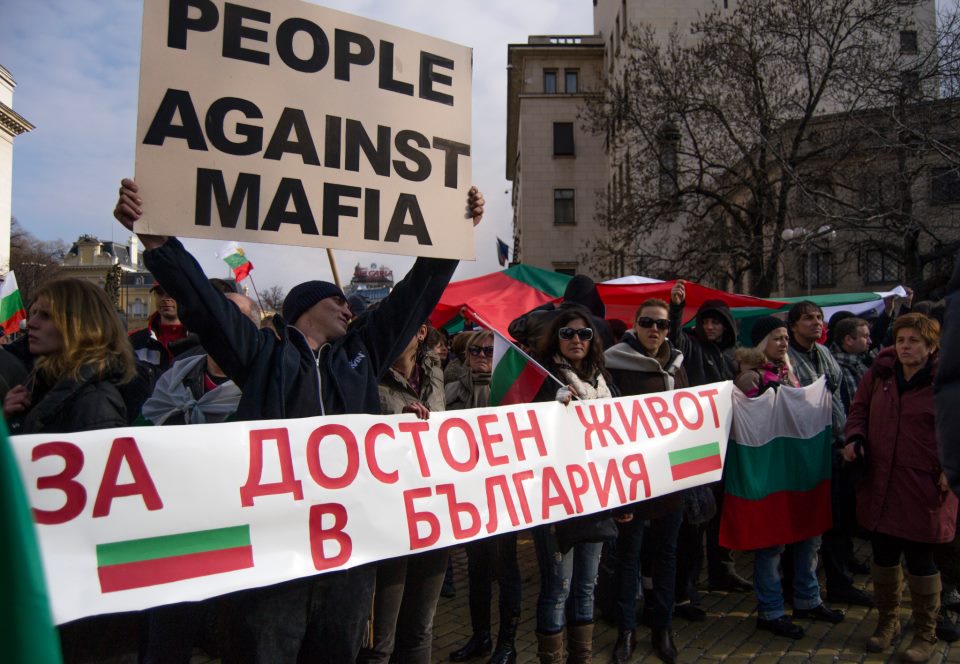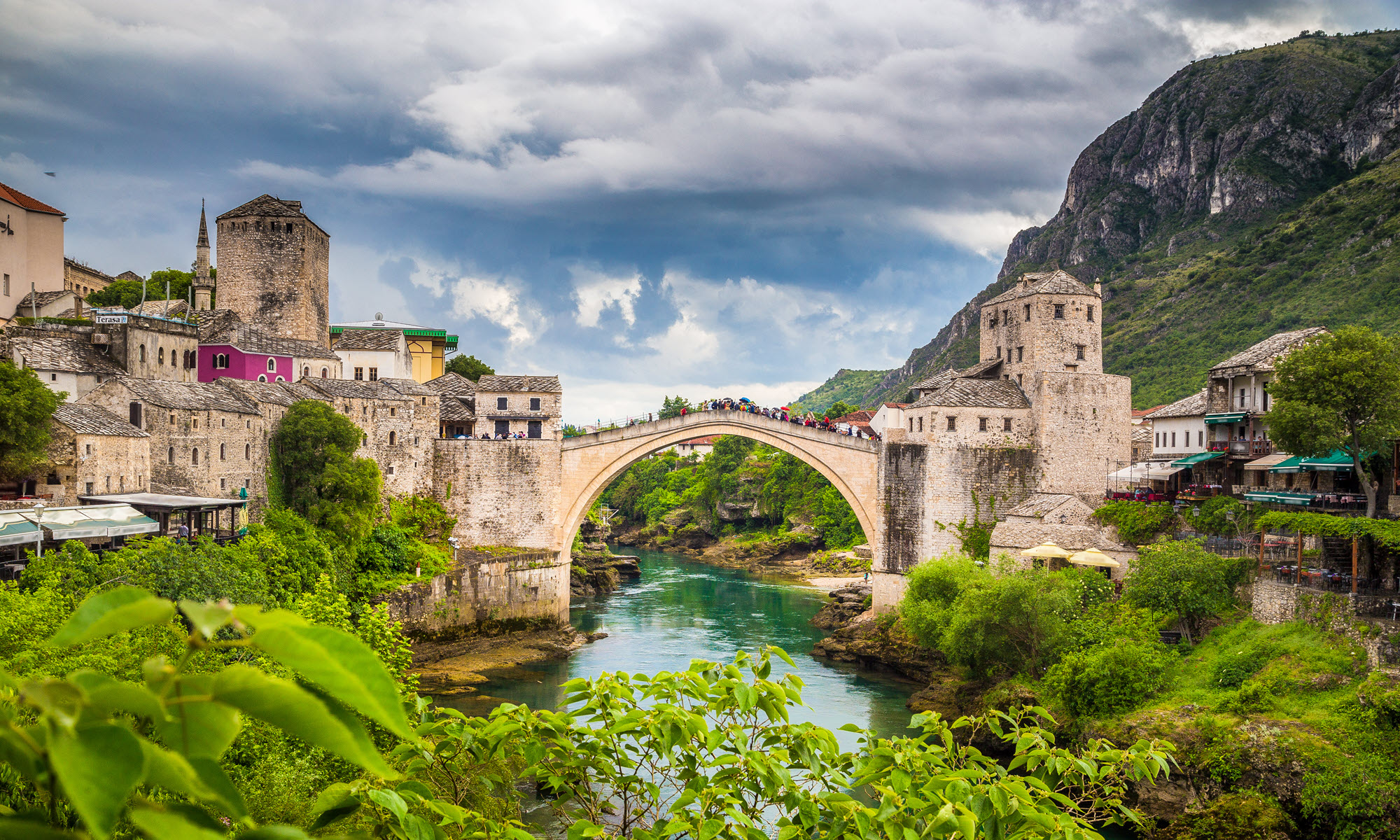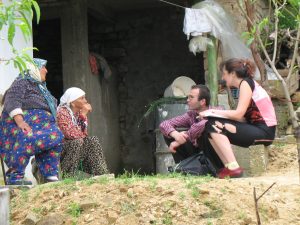(Alice Greschkow)
Sie bemalen Schilder und Transparente, zünden Fackeln an, manche schreiben sich Botschaften auf die Gesichter und tragen Flaggen um ihre Schultern. Es geht dann zum Treffpunkt, organisiert über soziale Netzwerke und Anrufe: der Protestmarsch an der Sofioter Adlerbrücke beginnt aufs Neue, genauso wie in den vergangenen Tagen.
Was in vielen anderen Ländern keine Besonderheit ist, ist für bulgarische Demonstranten ein Experiment mit der Demokratie. Nachdem das Land 500 Jahre lang von den Osmanen regiert wurde, daraufhin kurzzeitig eine Monarchie war, anschließend eine über 40-jährige sozialistische Ära überstand, wurde nach dem Zusammenbruch des politischen Systems versucht, demokratische Strukturen aufzubauen. Lange Zeit war dies allerdings nur in der Theorie der Fall: das Land war von Schattenwirtschaft und der Mafia beherrscht den Alltag über viele Jahre.
Es schien, als sei eine eingefleischte Obrigkeitshörigkeit bedingt durch die politischen Systeme über Generationen weitergegeben worden sein und die Menschen ohne Orientierung dastanden. Was macht man mit dieser neuen Freiheit? Was macht man mit Demokratie? Wie widerspreche ich?

Nach über 20 Jahren begannen Ende 2011 die ersten bedeutsamen organisierten Proteste, die 2012 fortgeführt wurden. Eine neue ökologische Bewegung, die hauptsächlich aus jungen Leuten bestand, hatte sich entwickelt und sie vertrat ihren Standpunkt: Fracking (hydraulic fracturing, eine naturgefährdende Methode, um durch Tiefbohrungen Erdgas oder Erdöl zu schöpfen) sollte verboten werden. Im Gegensatz zu der älteren Generation waren diese jungen Demonstranten noch nicht erschöpft von den prekären und ermüdenden Umständen, die auf der Bevölkerung lasteten: zwar Fiskalmusterschüler in der EU, aber wirtschaftlich schwach mit niedrigen Löhnen, lachhaft niedrigen Sozialleistungen und undurchsichtigen politischen Beschlüssen, waren Bulgarien oft an seine Grenzen gestoßen, doch in dieser Hinsicht sollte sich einiges ändern. Nach Frankreich wurde Bulgarien das zweite Land der Europäischen Union, in dem Fracking untersagt wurde – ein großer Erfolg für die grüne Bewegung, die sich von Parteizugehörigkeit distanziert, in einer Gesellschaft, in der die grünen Parteien noch nie den Einzug in das Parlament geschafft haben.
Auch gegen das umstrittene „Anti-Counterfeiting Trade Agreement“ (ACTA), das gegen Produktpiraterie und Urheberrechtsverletzungen angehen sollte, gab es massive Proteste im Land: erneut waren es die jungen Leute, die auf die Straße gingen, weil sie Einschnitte in die Informations- und Meinungsfreiheit befürchteten. Kurze Zeit später wurde die Ratifizierung des Abkommens gestoppt. Solidaritätsbekundungen und öffentliche Protestaktionen fanden zudem im Rahmen des Gerichtsverfahrens der russischen Punkband „Pussy Riot“ im Sommer 2012 statt.
Es sind gerade diese Februarwochen, in denen erneute Demonstrationen von bisher unerreichter Intensität stattfinden: Zehntausende gingen im ganzen Land auf die Straßen, um gegen die Privatisierung und das Monopol im Energiesektor zu protestieren. Plötzlich um das Vielfache angestiegene und für viele Menschen unbezahlbare Stromrechnungen führten dazu, dass Bulgarinnen und Bulgaren ihren Unmut und Frustration zum Ausdruck brachten. Es kam zu Gewaltausschreitungen und kleineren Gefechten mit der Polizei. Dann geschah das Unerwartete: Ministerpräsident Bojko Borissov der konservativen Partei GERB und das Kabinett beugten sich dem Druck des Volkes und traten geschlossen zurück. Es ist eine Sensation, dass es so weit kam und die Stimme der Bevölkerung gehört wird, obwohl Vermutungen bestehen, dass es sich lediglich um einen geschickten Schachzug des Politikers handeln würde.
Dennoch treffen sie sich weiterhin an der Sofioter Adlerbrücke, marschieren in die Innenstadt, an den Ministerien und dem Parlament vorbei und skandieren die Parolen, die ihnen auf der Seele lasten: für soziale Gerechtigkeit, gegen das Monopol, gegen Korruption und die Mafia.
Es ist in Anbetracht der Geschichte des Landes tatsächlich erstaunlich, dass Bulgarinnen und Bulgaren es endlich schaffen, sich für friedliche Proteste zu organisieren und sich gemeinsam für einen Zweck einsetzen. Es ist zum einen die Frustration, die sie zu solch einem Schritt zwingt, zum anderen aber auch ein neuer gewachsener Glaube an Demokratie und die kollektive Macht des Volkes. Man bekommt den Anschein, das Land könnte zu neuem Selbstbewusstsein, einem anderen politischen Verständnis und gar einer neuen partizipativen politischen Kultur gelangen, die bisher de facto nicht existierte. Man war zu sehr daran gewöhnt, Umstände, so schwer sie in Bulgarien auch waren und sind, zu akzeptieren und sich dem Wort von Vorgesetzen, Politikern, reichen Geschäftsmännern und allgemein allen Menschen in höheren Positionen widerstandslos zu fügen.
Nachdem die Wut über Korruption, verantwortungslose Politik und die Mafia immer weiter gewachsen ist, könnte der steinige Weg durch die Armut und Existenzangst der Beginn einer tiefgreifenden Veränderung sein, wenn die Stimmung nicht kippt oder erneut jemand aus der Schattenwirtschaft oder Politik diese angestaute Energie für seine eigenen Interessen benutzt.


